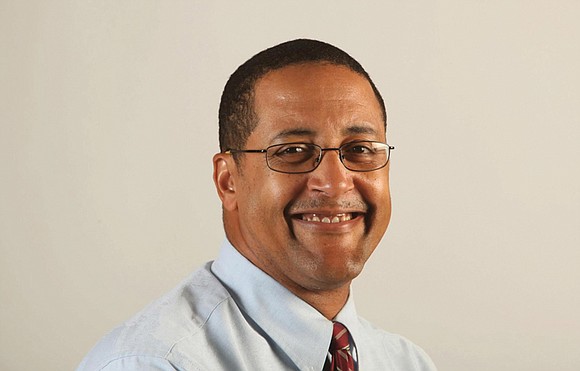To save lives, lawmakers must seek common ground on gun legislation, by Roger Chesley
1/18/2024, 6 p.m.
Democrats in the Virginia General Assembly, now in charge in both chambers in the session that opened last week, hope to pass several gun-control bills. The wish list includes legislation to ban the sale of new assault weapons and large-capacity magazines, The Washington Post reported.
They also want to place Gov. Glenn Youngkin, a Republican, “on the record” regarding firearms — ostensibly to mark him for any future political campaign after his four-year term ends. (Governors in Virginia are limited to one non-consecutive term.)
The latter effort is a waste of time, though, since Gov. Youngkin has generally skirted the issue but also given no indication he’d sign something anathema to his party’s base.
That’s par for the course for most GOP officeholders.
Gov. Youngkin wouldn’t even mention the word “guns” while addressing hundreds of people at a vigil following a mass shooting by a Chesapeake Walmart employee. I witnessed the governor’s gutlessness that night in November 2022.
The governor also previously has pledged to roll back gun control. So no one should be surprised if Gov. Youngkin mimics the party line: No new gun restrictions.
A spokesperson for Gov. Youngkin told me he’ll review any legislation that passes both chambers. The spokesperson didn’t respond to other questions I asked, including enunciating Gov. Youngkin’s policy toward firearms.
His administration also hasn’t begun spending the $5 million from the federal government awarded last February. The money will pay for mental health and substance abuse programs within the criminal justice system, Jackson Miller, director of the state Department of Criminal Justice Services, told me by email. Bureaucratic approvals for spending the grant money should be finished soon, Mr. Miller said.
The emphasis, though, is clearly on promoting red flag laws –— measures designed to prevent gun violence by people with a history of threatening or erratic behavior — as the feds noted when announcing the grants. It’s hard to believe a program Gov. Youngkin was gung-ho about would take this long to implement.
This doesn’t mean Democrats should punt on firearms legislation. However, they should expend more energy on bills that could gain bipartisan support.
“The best evidence supporting gun-violence-reducing effects is for legislation that places limits on who can access firearms, or that restricts the conditions of access to them,” Graham Ousey, sociology professor at the College f William & Mary, told me by email.
“Restricting purchases and requiring relinquishment for individuals convicted of violent infractions or domestic abuse, requiring waiting periods for purchases, and requiring safe storage practices and technologies are good policies and generally are better-supported by research” than bans on assault weapons, said Dr. Ousey.
Most firearms legislation didn’t reach the governor’s desk in his first two years in office because the Democratic-controlled Senate and then-GOP-controlled House of Delegates canceled each other out. What passed tended to be non-controversial, like HB2387 in 2023, a firearm safety device tax credit.
If Gov. Youngkin vetoes firearms legislation this year, Democrats — who have slight majorities in both chambers — would need help from Republicans to override him.
That’s not likely. So why insist on pushing tough gun-control measures?
Lori Haas, an advocate whose daughter was wounded in the 2007 massacre at Virginia Tech, told me the exercise is still worth it.
“There’s value for constituents and voters to know where their representatives stand on the issues,” said Ms. Haas, advocacy manager at the Center for Gun Violence Solutions at Johns Hopkins University’s School of Public Health. “For instance, we know that limiting high-capacity magazines, above 10, can reduce the death toll in mass shootings,” she said. “Additionally, assault weapons put our law-enforcement officers at increased risk of harm.”
She pointed me to a 2021 article, in which criminology professor Christopher Koper at George Mason University found assault weapons were used in 10% to 30% of fatal mass shootings. He also said they accounted for 13% of killings of law enforcement officers in the line of duty.
Besides the legislation on assault weapons, lawmakers have filed bills including HB270, creating uniform standards for a Virginia Firearm Buy-Back Program; and SB55, establishing a three-day waiting period for gun-buying.
A version of the latter bill died in 2023. The sponsor, Del. Cliff Hayes, D-Chesapeake, told me previously he offered the legislation because the killer in the Walmart mass shooting had legally bought the handgun the same day as the attack.
We’ll never know if a possible “cooling-off period” may have changed Andre Bing’s mind. But we do know researchers found such waiting periods reduce gun homicides by 17%. Mr. Bing might have skipped the purchase if he couldn’t get it right away.
Democrats could try to gain political points by showing up Gov. Youngkin. Instead, they should take the deliberative, bipartisan route to pass bills making it tougher to kill people.
The writer is a columnist for the Virginia Mercury.






